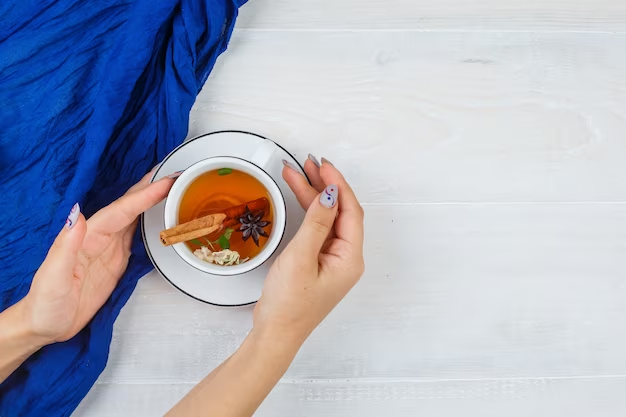Digestion is a cornerstone of good health, and when it’s out of balance, everything feels off. Bloating, that feeling of uncomfortable fullness or gaseousness, is a common digestive complaint. Fortunately, for those seeking natural remedies, certain teas have been shown to ease these symptoms. If you’re grappling with digestion issues, you’re about to discover some soothing allies from the world of tea. In this article, we’ll explore the best teas for assisting with digestion and reducing the discomfort of bloating, backed by tradition and augmented by modern science.
Understanding Bloating and Digestive Discomfort
What is Bloating?
Bloating is the uncomfortable sensation of having an inflated belly, often due to excessive gas in the digestive system. Not only can it cause physical discomfort, but it can also lead to embarrassment and distress. It’s a common symptom that can result from several factors, including diet, lifestyle, and medical conditions. Recognizing bloating and understanding its triggers are the first steps towards managing this unpleasant condition.
Common Causes of Digestive Discomfort
Digestive discomfort can be traced back to a variety of causes. These often include overeating, eating too quickly, or consuming foods that are high in fat or difficult to digest. Stress, a sedentary lifestyle, and food intolerances can also play significant roles. While the causes are many and varied, the quest for relief often leads us back to simple, natural solutions—like tea.

The Best Teas for Digestion and Bloating
Across cultures, teas have been a digestive aid for centuries. Here are some teas that can help ease digestive woes:
Peppermint Tea
Peppermint tea is a refreshing beverage celebrated for its digestive benefits. Peppermint’s active ingredient, menthol, relaxes the digestive tract muscles and can alleviate symptoms of bloating and gas.
Ginger Tea
Ginger tea, with its spicy kick, is next on our list. Ginger has compounds that can help move food through the digestive tract and reduce symptoms like bloating, nausea, and constipation.
In the context of teas for digestion and bloating, let’s outline the leading options and their known benefits:
| Tea Type | Key Benefit | Active Component |
|---|---|---|
| Peppermint | Soothes the digestive tract | Menthol |
| Ginger | Promotes digestion; reduces nausea | Gingerol |
| Chamomile | Relaxes digestive muscles | Apigenin |
| Fennel | Alleviates gas and bloating | Anethole |
| Green | Enhances metabolism | Catechins |
Incorporating these teas into your routine can offer respite from digestive unrest, and each brings its own set of additional health benefits.
How to Incorporate Digestive Teas into Your Routine
Finding the right time and way to enjoy these teas can maximize their digestive benefits:
Best Practices for Tea Brewing
- Start with fresh, cold water, and bring it to a boil.
- Use one tea bag or one teaspoon of loose leaf per cup.
- Steep the tea in hot water—for herbal teas, this is usually between 5 to 10 minutes.
- Avoid over-brewing to prevent bitterness and to maintain the therapeutic properties.
When to Drink Tea for Optimal Digestive Health
- After meals: Drinking tea post-meal can aid in digestion.
- During discomfort: Sipping tea at the onset of bloating can provide timely relief.
By integrating these habits into your daily routine, you can enhance your digestive health and reduce the frequency and severity of bloating episodes.

Other Lifestyle Tips for Managing Digestion and Bloating
Apart from tea, there are other ways to combat digestive discomfort and bloating:
- Dietary Adjustments
Making small changes to your diet can have a significant impact on digestion. Consider increasing fiber intake gradually to improve bowel function, reducing foods that are notorious for causing gas, eating smaller, more frequent meals to avoid overburdening the digestive system, and chewing food thoroughly to kickstart digestion and reduce the workload on your gut. - Importance of Hydration
Water is essential for digestion. It helps break down food, absorb nutrients, and move waste through the digestive tract. Aim for at least eight 8-ounce glasses of water per day and limit drinks that can dehydrate, such as those high in caffeine or alcohol. - Physical Activity’s Role in Digestive Health
Regular exercise helps keep the food moving through the digestive system and reduces bloating. Aim for at least 30 minutes of moderate activity most days of the week, and remember that consistency is key.
Conclusion
Exploring the world of digestive teas can be a delightful and healing journey. Peppermint, ginger, chamomile, fennel, and green tea are nature’s gifts for those suffering from digestive distress and bloating. Coupled with sensible dietary practices, adequate hydration, and regular physical activity, these herbal remedies can greatly enhance your digestive health. Remember, the best approach is one that holistically integrates natural solutions with healthy lifestyle choices. So, heat up the water, select your tea, and toast to a soothed and comfortable belly.

FAQs About Tea and Digestive Health
- How quickly can tea relieve symptoms of bloating?
The time it takes for tea to relieve bloating can vary depending on the individual and the specific cause of bloating. Generally, you may start to feel better within a few minutes to a couple of hours after drinking the tea. - Are there any teas that should be avoided for digestive issues?
Some teas that are high in caffeine, like certain black teas, may exacerbate digestive issues for some people. It’s best to monitor how your body reacts to different teas. - Can I drink digestive teas every day?
Most herbal teas are safe to drink daily. However, it’s always good to consult with a healthcare provider, especially if you have underlying health issues or are pregnant. - Will adding sugar or milk to my tea impact its digestive benefits?
Adding sugar or milk can negate some of the digestive benefits, as dairy can contribute to bloating in lactose-intolerant individuals and sugar can ferment in the gut, causing gas. - Is it possible to have an allergic reaction to digestive teas?
Yes, if you are allergic to any of the plants or herbs in the tea, you could experience an allergic reaction. Always check ingredients and consult with an allergist if you have known allergies.



